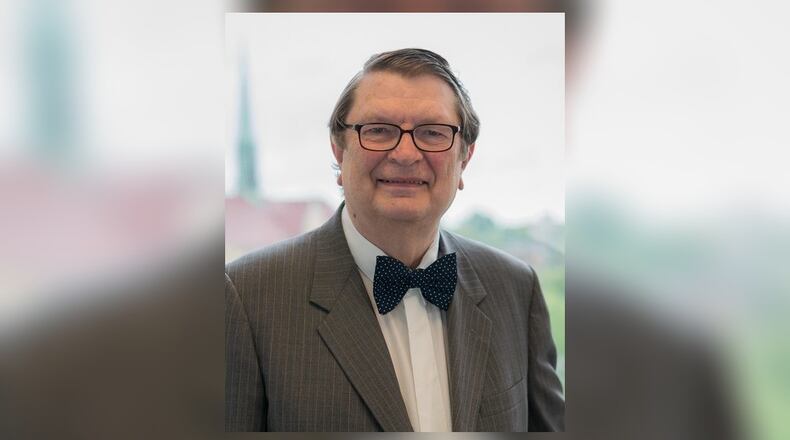But for customers, using the library is a unique experience, unlike any other library in the United States, and I would encourage everyone to put it on their bucket list. Although there is only one public entrance to the library, located within the United States, Canadians are permitted to walk on the sidewalk into the United States to enter the public entrance. Neither Canadians nor U S citizens are required to have a passport to enter the library, although many people advise having your passport with you because movements at the library are often monitored by the U. S. Customs & Border Protection guards whose post is literally across the street from the library.
Within the library lies a literary mix of French language books and English language books, all shelved in beautiful wood rooms — each of the three reading rooms incorporates either oak, cherry or bird’s eye maple. The reading rooms are shielded from the outside by beautiful stained-glass windows. All in all, that collective ambiance makes the library look more like a sanctuary or shrine.
Susan Elliott and I have been using this library for over twenty years, and we are currently card-carrying members, with our membership qualifying by having a summer camp within 20 miles of the library. As you will see in the accompanying photograph, I am standing in Quebec and Susan is standing in the United States, separated by the distinct black line.
Because of its special status of straddling two countries, the library for many years had presented an opportunity for many foreigners, especially Iranian families to get together, even as they were separated because a child had only a one-time visa to be in the United States with the Iranian parents might be residing in Canada. Their solution was to drive to the library and enjoy a family reunion. They were able to do this despite Travel Ban against Iranians, issued in 2017. But, as the stories about these family reunions percolated within mass media, government officials from both countries began to question the legitimacy of these family reunions. Reacting to that pressure, the Board of Trustees of the Haskell Free Library adopted a rule that prohibited using the library for family or friend reunions. In fact, the Library’s website now contains the message that “family/friend reunions (cross-border visits) are not allowed.”
The Haskell Free Library is unique in its own right, but it now has relevance to the Dayton community because it is the backdrop for A Distinct Society, a play currently being staged by the Human Race Theatre at the Loft Theater from February 5 -14. Kareem Fahmy, the Canadian-born playwright of A Distinct Society grew up in Sherbrooke, Quebec, not far from the Haskell Free Library, and will be in Dayton to oversee the production and to attend a few of the early presentations.
Fahmy used those family reunions to illustrate the emotional stress on friends and family as they try to maintain their relationships in the distinct society in which they were struggling. At the same time, the play shows how the power of love can soften those struggles even as families are separated by society’s barriers represented by the black tape. Whether you actually visit the Haskell Free Library & Opera in Derby Line, Vermont, or whether you actually see A Distinct Society when its shows in Dayton, you will have a better appreciation how the black tape separates countries and can create a distinct society.
Dayton attorney Merle Wilberding is a regular contributor.


